I am reading an excel file using the readxl package and more specifically the read_excel() function of that package.
The strings in one of my columns contain the "$" symbol at the end of them. When I check the length of the strings in that column the number reported by nchar() is one more than the length I visually see (8 instead of 7).
This is not the case for the rest of the columns in my excel file that do not contain the "$" special character at the end.
- I tried to explicitly format that column as "Text" in excel, but it did not help.
- I also tried to use the
trim_ws = TRUEparameter of the function, again without success.
Here are the strings that I read along with the results of nchar:
Any help would be much appreciated.
